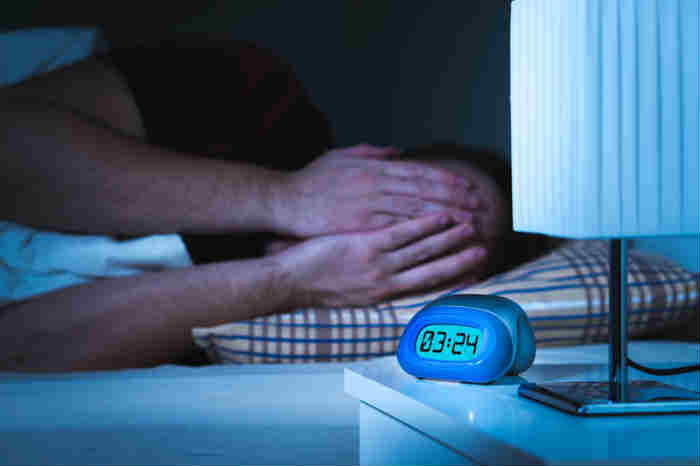











Nightmares are very realistic and distressing dreams that wake you from sleeping. Nightmares occur more frequently during REM sleep which is the deepest part of sleep and where most dreaming takes place. Dreams in general can be different for each individual. There are certain recurring dreams or nightmares that people have in common including falling from a high place or attempting to run away from something. Nightmares can occur from images you have seen, traumatic experiences you have had, or even your greatest fears. Whatever the subject of the nightmare may be, the experience seems so real that people may wake suddenly with their heart pounding, body sweating, or tears dripping down their face from crying. There are different suggestions for why nightmares occur. Some medications can cause nightmares along with mental health concerns like post-traumatic stress, anxiety, and depression. Other sleep disorders and general sleep deprivation are thought to be causes of nightmares as well.

No matter your age, nightmares can be both disturbing and upsetting. Chronic nightmares can lead to sleep deprivation. Long-term sleep deprivation can lead to other health issues including heart disease and obesity. If you suffer from chronic nightmares, it is important to look into treatment options.
Medication
Certain medications can have interesting side effects. Some medications for blood pressure or even depression could be a reason why you are experiencing nightmares. Be aware of the potential side effects of the medications you have been prescribed. Talk to your doctor about those medications. It is possible the dosage could be adjusted or the medication could be changed completely. If the medication is causing the nightmares, there are likely other options you can look into when you consult your physician or psychiatrist.
Underlying Issues
If there is an underlying issue, addressing those concerns can also help alleviate nightmares or reduce the frequency of nightmares. Depression, anxiety, and stress can result in nightmares, addressing the issues underneath can help overall mental health and reduce nightmares. For those struggling with chronic nightmares as a result of something like a traumatic event, there are some therapeutic techniques that may help. For example, guided imagery can be utilized to help the person create a scenario in their mind of how they would want the dream to go. Imagine if the person dreams they are trying to run somewhere but feel they cannot move, they might visualize standing strong and facing whatever they were trying to run from.
General Self-Care
Having good self-care strategies can help combat nightmares. Sleep hygiene can be vital to help an individual maintain a good sleep schedule. Quality sleep hygiene can include a regular bedtime routine, a calming activity like reading, avoiding caffeine before going to sleep, and refraining from screen use right before bed. It is important to associate the place where you sleep with calm and relaxation rather than distress. Stress-reducing activities like exercise or creative activities can be incorporated into your self-care routine. Reducing overall stress and anxiety can help lessen the amount of nightmares especially if the subject of the nightmare is related to the stress you are feeling.